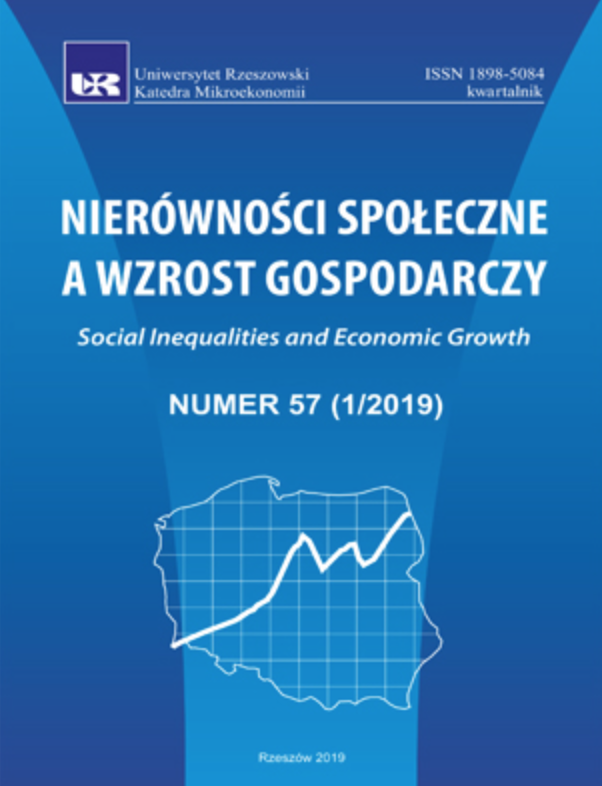The idea of justice – modern dilemmas
DOI:
https://doi.org/10.15584/nsawg.2019.1.2Keywords:
justice, political transformation, John RawlsAbstract
The aim of the paper is to show a role of an idea of justice in social and political life. In the first part the Author describes the history of justice beginning with the Greek tradition (Platon’s State), through Christianity (as described in encyclical “God is love” by Benedykt XVI) till the modern theory of justice by J. Rawls, the rules of which (e.g. equality of chances, income redistribution) constitute a model for many modern states. In the second part an attempt to interpret the Polish political transformation after 1989 year is done, considering the Rawls’ claim that all institutions and mechanisms regulating a life of political community, independently of their modernity and excellence, must be put to the question in a long term if they do not fulfill the basic condition of justice. The Author proposes a thesis that the program of “Prawo i Sprawiedliwość” political party in 2015 year met the unfulfilled need for justice in Polish society and it was a source of the electoral success and social support for the government in the following three years. Nevertheless, some dangers connected with an excessive growth of the governmental social programs are indicated in the final part. It is reminded, on the basis of Hayek statement, that striving for economic equity creates a fatal threat for freedom.Downloads
Download data is not yet available.
Downloads
Published
2020-11-13
How to Cite
Bobko, A. (2020). The idea of justice – modern dilemmas. Social Inequalities and Economic Growth, 1(57), 25–34. https://doi.org/10.15584/nsawg.2019.1.2
Issue
Section
Articles
License
Copyright (c) 2019 University of Rzeszow

This work is licensed under a Creative Commons Attribution-ShareAlike 4.0 International License.


